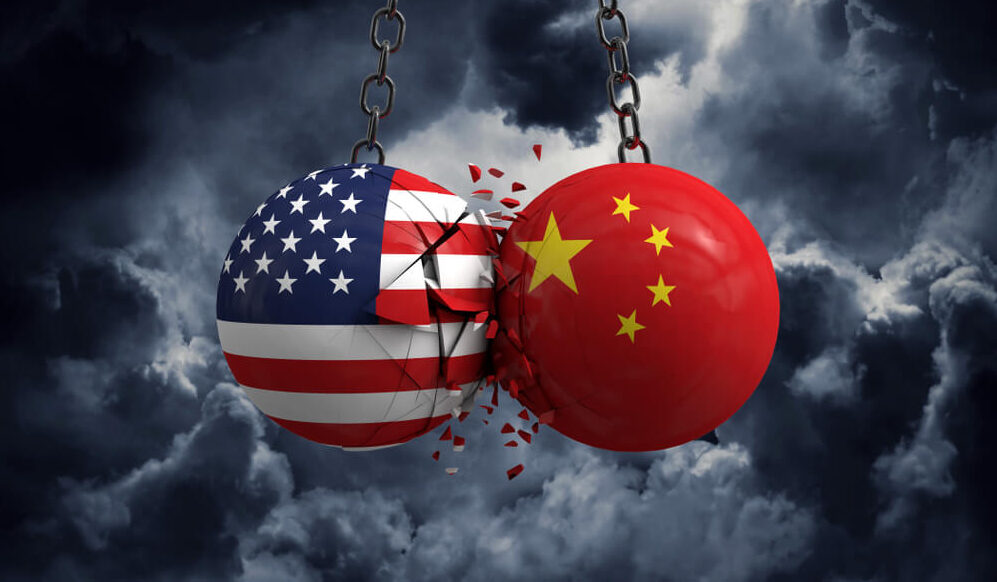The U.S. and China are at each other’s throats yet again with Washington waving a laundry list of complaints in Beijing’s face, including its handling of the coronavirus and Hong Kong. Is there an opportunity to invest during a renewed trade war?
Well, there’s an always an opportunity on Wall Street if you know where to look.
The COVID-19 outbreak triggered an epic stock market crash in late February that lasted just over a month before investors, aided by the Federal Reserve’s monetary support, started sending shares rocketing higher again.
Traders may have a short memory, but the stock market was rocked with volatility last year as the world’s two largest economies traded blows. Seemingly every threat of another tariff levied by either country sent markets tanking, while every positive development was met with soaring gains.
Banyan Hill Publishing Chartered Financial Analyst Clint Lee thinks volatility will come roaring back as investors also have the coronavirus to contend with.
“The trade war made businesses scared to spend and invest,” said Lee, a Chartered Market Technician for The Bauman Letter. “But now we have the economic impact of COVID-19 to deal with as well. And there is little that the Fed can do directly to blunt the impact of a trade war, unlike the stimulus assault on the financial impact of the coronavirus.”
Beijing has been under fire from all sides for its response to the novel coronavirus outbreak, and it isn’t the only news out of China that’s been met with a critical eye.
U.S. President Donald Trump says the White House is working on a strong response to China’s newest security proposal concerning Hong Kong’s autonomy, and therefore its trade status with the U.S.
All of this has created a cold war-like environment between Washington and Beijing that has the Trump administration looking for ways out from under Beijing’s control on certain fronts.
Trump has made bringing business back to American soil a major goal during his time in office, and his administration has been particularly focused on China. Proposals include tax breaks for companies, subsidies and even a potential $25 billion “reshoring fund,” according to Reuters.
“The Trump administration has tried to find avenues to exert control over Huawei, which is China’s telecom giant,” Lee wrote via email. “They’ve been successful at limiting the ability of U.S. firms to supply Huawei, but have struggled to limit foreign suppliers up to this point. The key here is Taiwan Semiconductor Manufacturing Co. (NYSE: TSM).”
Lee argues that since the administration has successfully limited TSMC’s ability to supply Huawei, in tandem with TSMC’s plan to build a $12 billion manufacturing facility in Arizona, means semiconductors could be key during a renewed trade war.
“Semiconductors are the building blocks of any electronic device,” Lee said. “The U.S. has been slowly losing the edge in leading chip technology. This is part of an effort to bring all elements of the semiconductor supply chain back within U.S. borders to ensure access to the best technology, and not fall behind in the tech race with China.”
One Way to Invest During US-China Trade War
So it’s clear the U.S. is trying everything it can to cut as many ties with China as possible, especially on the technology front, and that means there’s an opportunity to invest on the developments out of a renewed U.S.-China trade war, and even a potential new Cold War.
Lee and The Bauman Letter have been tracking one exchange-traded fund in particular: the ROBO Global Robotics and Automation ETF (Nasdaq: ROBO).
“We’ve recently highlighted ROBO as it stands to benefit from a convergence of trends,” Lee said. “One is the rollout of 5G networks. While all the talk is about 5G smartphones, the true revolution will occur on the factory floor, and that’s because the speed of 5G networks will enable the next wave of automation.”
And more companies landing back on U.S. soil, which has only been highlighted by COVID-19’s destruction of supply chains, should only create a bigger uptrend for automation.
“Businesses are looking at other avenues to increase automation in a variety of use cases because of COVID-19’s impact on the availability of workers. For example, the clothing retailer Gap reached a deal to triple the number of warehouse robots it uses to process online orders.”
Lee, along with Ted Bauman have been giving readers of The Bauman Letter the inside line to this trend in automation for a while now. Read more about Bauman’s take on ROBO, here.
Also, be sure to check out Lee and Bauman’s recent video on how to invest during “U.S.-China Trade War 2.0” on YouTube, and subscribe to their channel and join the conversation along with 18,000 other subscribers.




